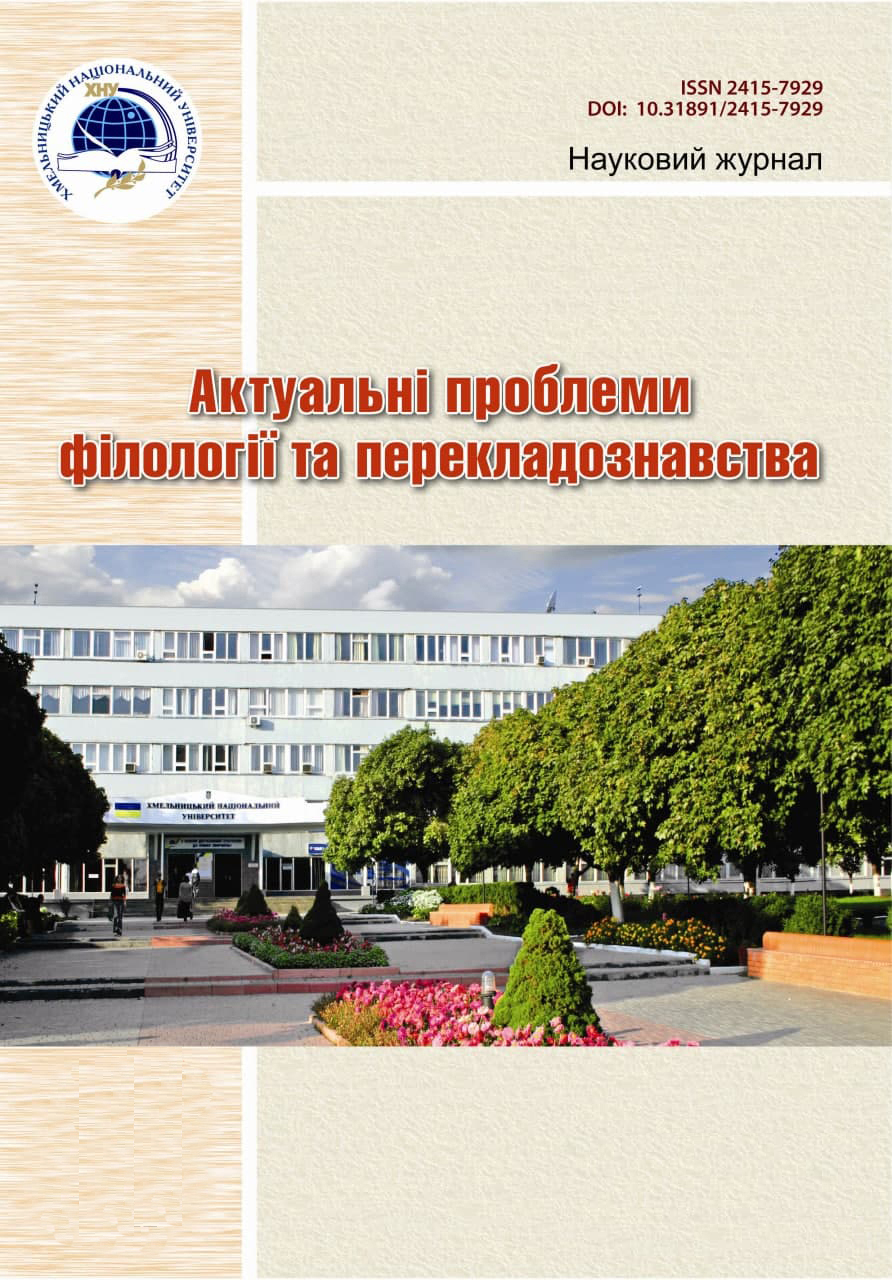LINGUISTIC AND SEMANTIC CHARACTERISTICS OF POEMS FOR CHILDREN BY YAN BZHEKHVA
DOI:
https://doi.org/10.31891/2415-7929-2020-20-11Keywords:
Yan Bzhekhva, works for children, epithet, metaphor, stylistic means, humor, ironyAbstract
The linguistic features of poems for children of Yan Bzhekhva, a world-famous Polish writer who was born in Podillia, Zhmerynka, Vinnytsia region is analyzed in the article. The writer's оeuvre in Ukraine has hardly been studied, and in Polish philology, literary critics were mainly interested in it.
The purpose of the article is to analyze the poems for children of Yan Bzhekhva in terms of the specifics of the author's use of lexical and stylistic means. In terms of ideological and thematic load, a significant part of his works for children is aimed at exposing the defects of human nature and at the same time contains a number of fantastic plots. This way of presentation promotes better perception of texts, teaches children to be polite and kind.
Y. Bzhekhva's linguistic world is clearly manifested in a set of linguistic and expressive means, but there are very few such tokens in children's poems, which is explained by the direction of poetry on the youngest and the attempts to convey instructive content with a minimum of «extra» words. Mostly the author used ordinary epithets and metaphors, among the stylistic figures we distinguish anaphora, epiphora, personification. An important function in poetry is performed by constructions with foreign speech, which facilitates the perception of the text by younger readers, because they can to some extent embody the characters, sometimes projecting their own response. For stylistic purposes, the author constantly uses punctuation: exclamation marks, question marks, three dots help to convey the intonation, emotions, inner state, character of the protagonist or sometimes the lyrical hero.
If we compare the Polish original texts and the Ukrainian translation, it should be noted that the Ukrainian versions have more stylistic means, including original epithets, metaphors, comparisons, phraseologies, proper names.
Downloads
Published
Issue
Section
License
Copyright (c) 2020 Н. ТОРЧИНСЬКА, О. ОРЛЕНКО (Автор)

This work is licensed under a Creative Commons Attribution 4.0 International License.

